La energía solar es poderosa, but storing it is the real game changer for energy independence and lower electricity bills.
We use lithium-ion solar batteries because they offer high energy density, ciclo de vida largo, carga rapida, and low maintenance—making them ideal for modern solar storage systems.
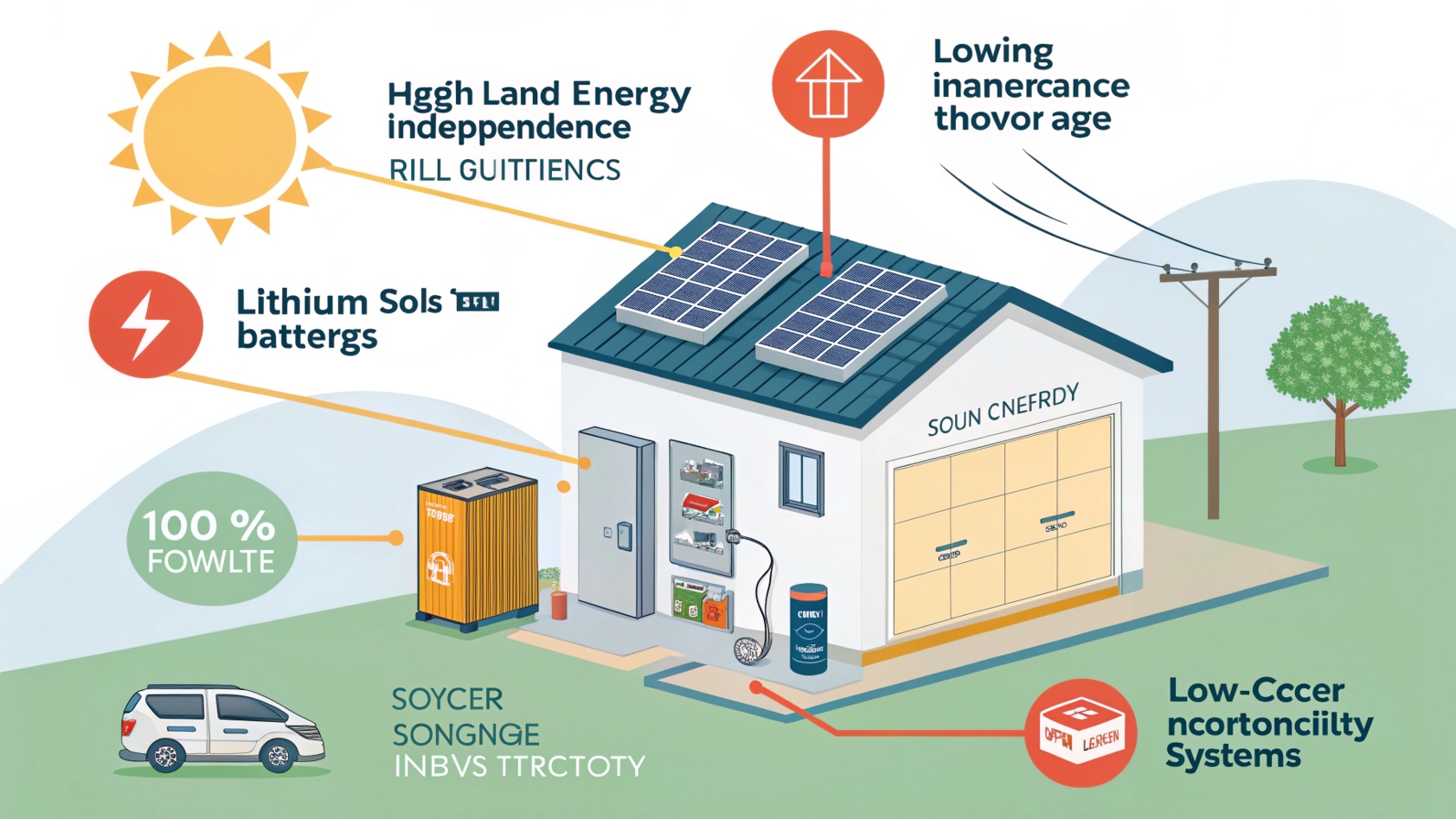
Without the right storage, even the best solar panel system can fall short. That’s why we focus on top-tier energy storage solutions. Lithium-ion batteries help businesses take full control of their energy supply, reduce peak demand charges, and improve system ROI. Vamos a desglosar.
What are the advantages of lithium-ion solar batteries?
Solar is intermittent, and we need storage that’s smart, fast, and dependable—especially for commercial users who can’t afford downtime.
Las baterías de iones de litio son livianas, compacto, have a longer lifespan than lead-acid batteries, and provide high-efficiency energy conversion.
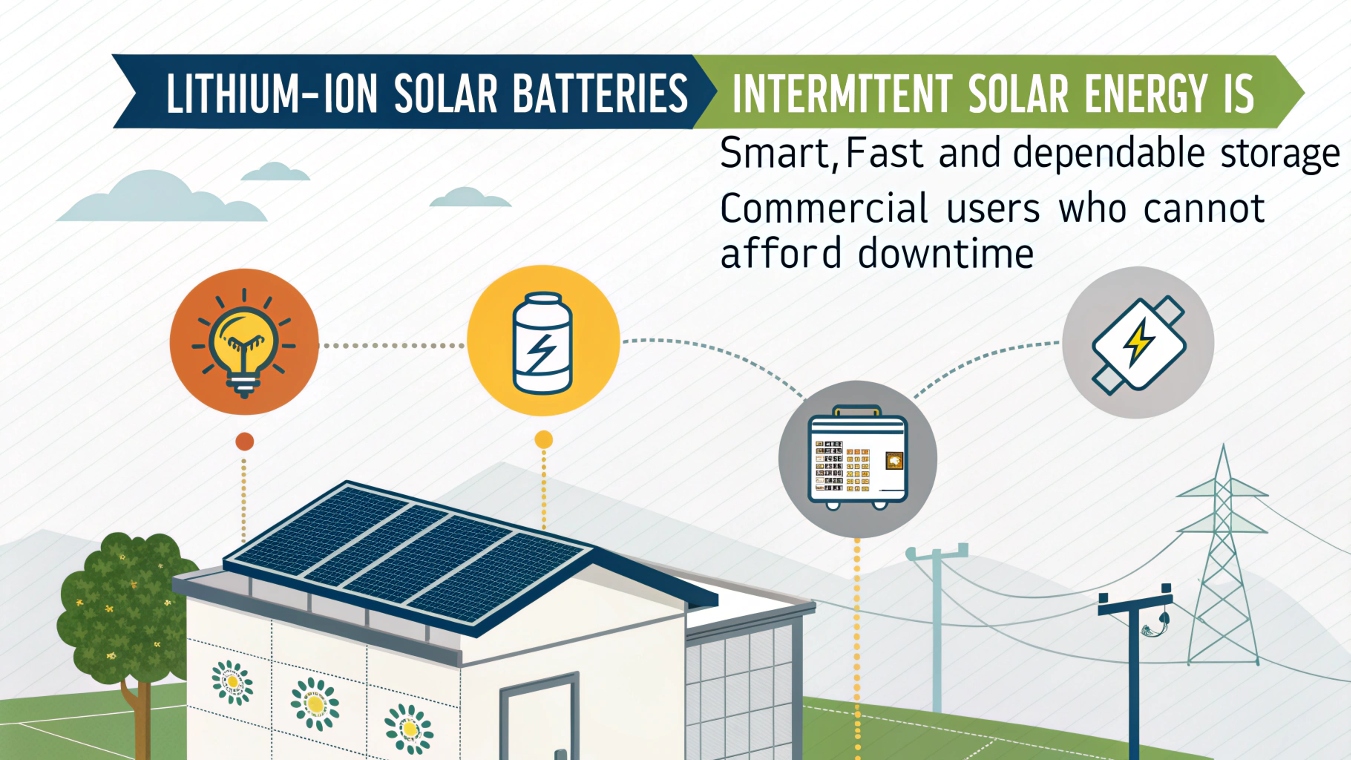
How do lithium-ion batteries outperform other battery types?
Lithium-ion batteries bring a strong mix of performance and cost-efficiency. Comparado con plomo-ácido, lithium-ion is a big step forward in nearly every way. Here’s a quick breakdown:
| Característica | Iones de litio | Ácido de plomo |
|---|---|---|
| Ciclo de vida | 4,000–6,000+ cycles | 500–1,200 cycles |
| Profundidad de descarga | Hasta 90% | 50–60% |
| Densidad de energía | Alto | Bajo |
| Mantenimiento | No | Regular (water/refill) |
| Eficiencia | 95%+ | 80–85% |
| Space/Weight | Compacto & luz | Bulky & pesado |
In our projects, especially with commercial solar systems, I’ve seen lithium-ion deliver consistent ROI even in high-demand environments like factories and warehouses. Clients often report 40–60% better battery utilization and faster return on investment.
Why is lithium good at storing energy?
We all want batteries that last long, charge fast, and fit into tight spaces—lithium makes that possible.
Lithium has a high electrochemical potential1, meaning it can store more energy in a smaller space, with less weight, and greater efficiency.
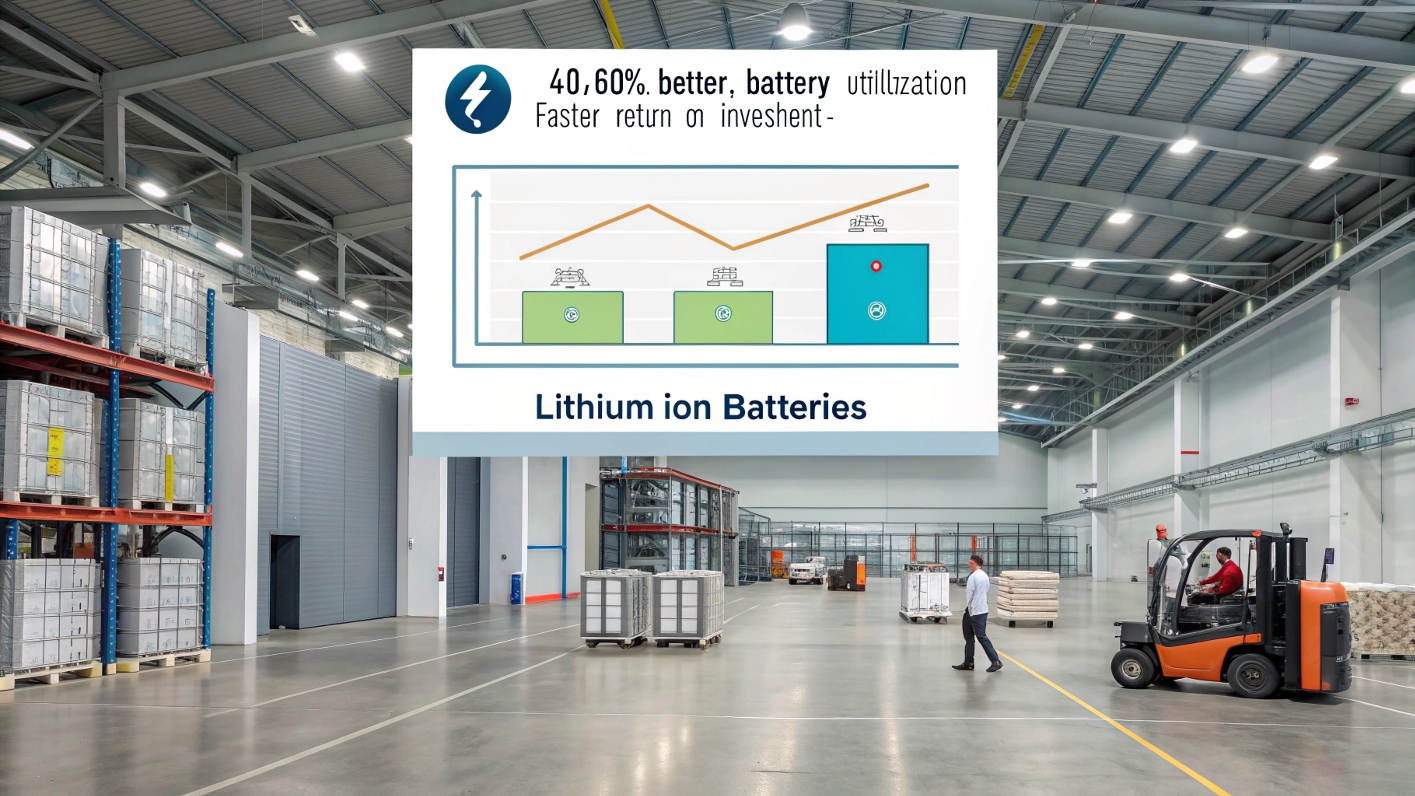
What makes lithium better at energy storage than other elements?
Lithium is the lightest metal, and its atoms are small and reactive. These properties let it move ions easily between the battery’s anode and cathode. That’s why lithium batteries charge faster, last longer, and don’t lose as much energy during use.
Here’s what that looks like in practice:
- Densidad de energía2: Lithium-ion batteries pack more power into smaller volumes. In a 20-foot container setup for a warehouse, we can often double the energy storage with lithium compared to older tech.
- Ciclos de carga3: Lithium can handle thousands of charge-discharge cycles without degrading quickly. One of our industrial clients uses them daily for peak shaving—and the battery is still going strong after five years.
- Eficiencia: Less energy is lost during transfer, meaning more solar power gets stored and used.
What are the benefits of solar battery storage?
Having solar panels is great—but pairing them with storage is what unlocks real independence and savings.
Solar battery storage lets users store excess energy, use it during peak hours or outages, reduce grid dependency, and lower electricity bills.
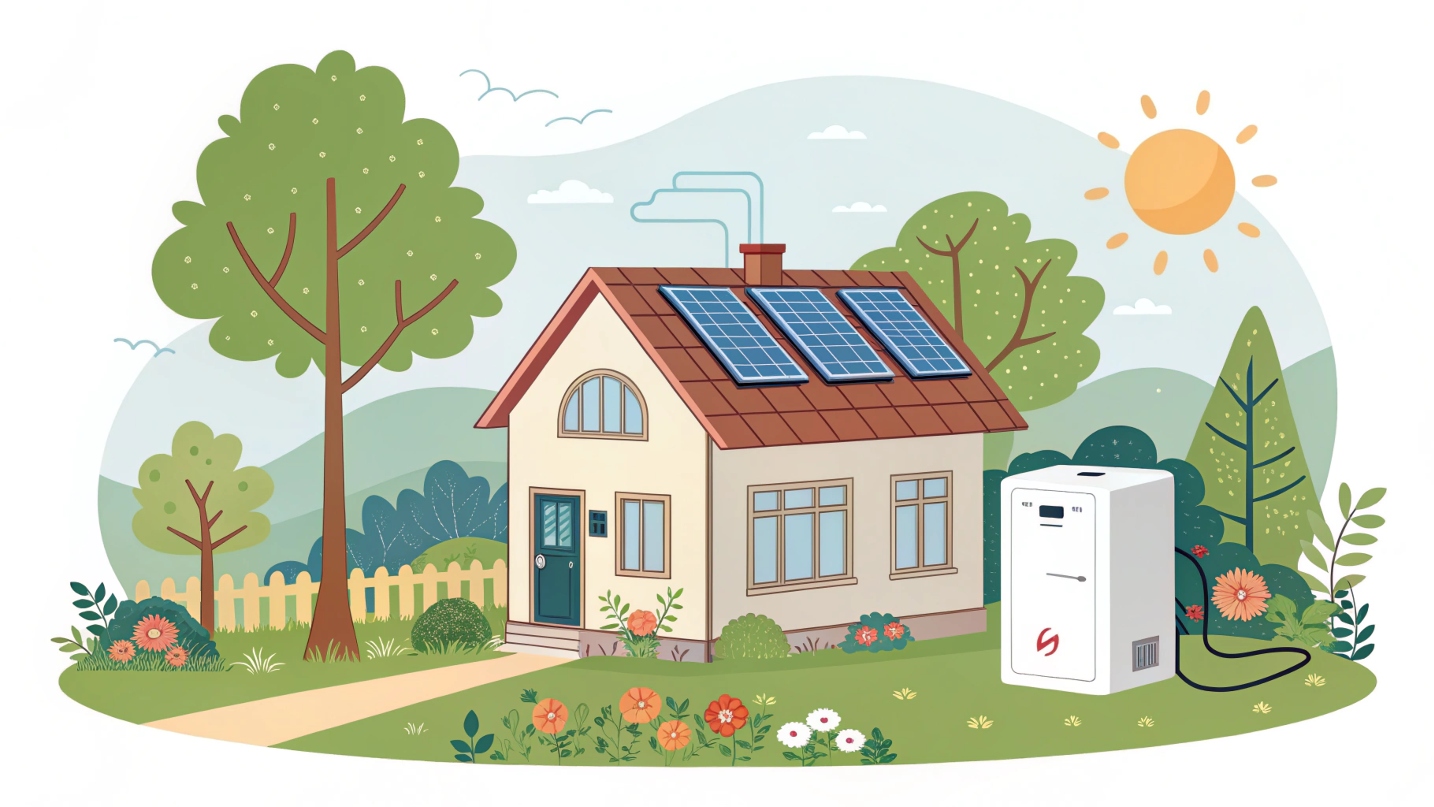
Why do batteries make solar power more useful?
With batteries, solar isn’t just for sunny hours anymore. This is a game changer for businesses that operate around the clock or face unstable grid connections. I’ve seen clients in logistics use stored power to protect their cold chains during outages. Others rely on batteries to run night shifts more cost-effectively.
Here’s what batteries add:
- Cambio de carga: Store energy during low-demand times and use it when rates are high.
- Potencia de respaldo: Keep critical operations running during grid outages.
- Off-grid use: Operate in remote areas where grid access is limited or unstable.
- Increased self-consumption: Use more of your own solar power instead of exporting to the grid for low returns.
With energy costs rising and sustainability pressure increasing, smart battery storage isn’t a luxury—it’s essential.
What are the advantages and disadvantages of lithium-ion battery storage?
No technology is perfect—but some are definitely better than others. Lithium-ion offers more pros than cons.
Advantages include high energy density, vida larga, y carga rápida. Disadvantages include higher upfront cost and fire risk if poorly managed.
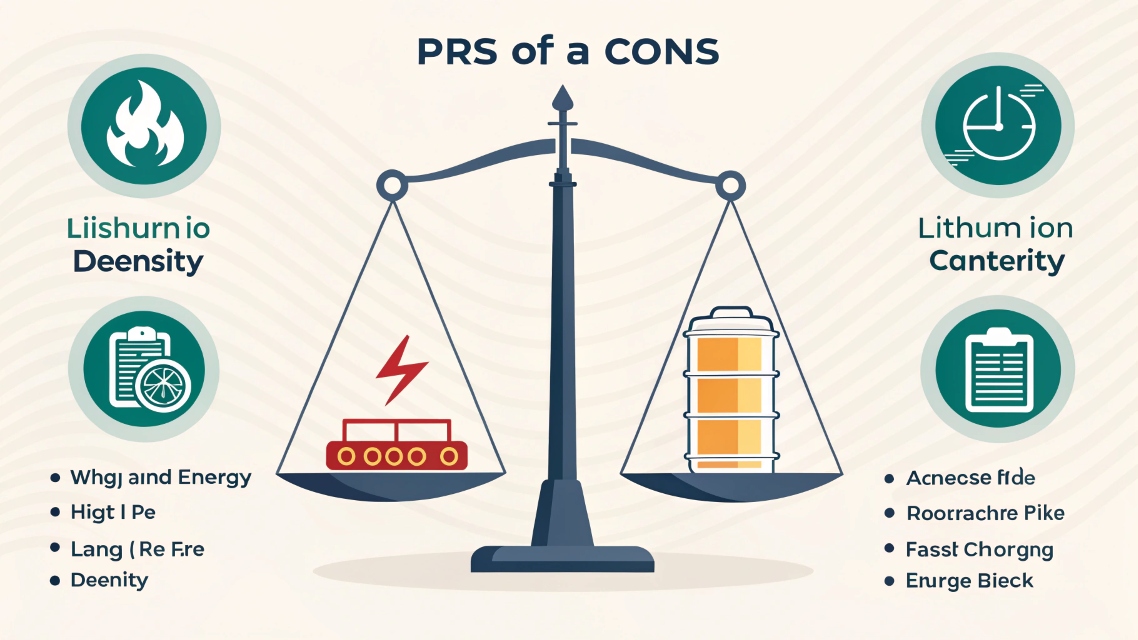
Is the investment worth the tradeoffs?
I’ve worked with hundreds of commercial clients who were concerned about the upfront costs of lithium. But when we ran the numbers, most saw ROI within 5–8 years thanks to savings on energy bills, reduced downtime, and grid independence.
Here’s a clearer view:
| Ventajas | Contras |
|---|---|
| Ciclo de vida largo | Mayor costo inicial |
| Low maintenance | Sensibilidad a la temperatura |
| Carga rápida | Requires battery management systems |
| Alta eficiencia energética | Risk of thermal runaway if damaged |
| Scalable and modular | Recycling is still developing |
With the right supplier and battery management system, the risks can be managed. That’s why we only use Tier 1 brands with built-in protection systems, and our engineering team handles the integration with precision.
How long can solar energy be stored in a battery?
Storage duration matters, especially for operations that run into the night or during cloudy days.
Solar energy can be stored in lithium-ion batteries for several hours to a few days, depending on battery size, diseño del sistema, and energy use.
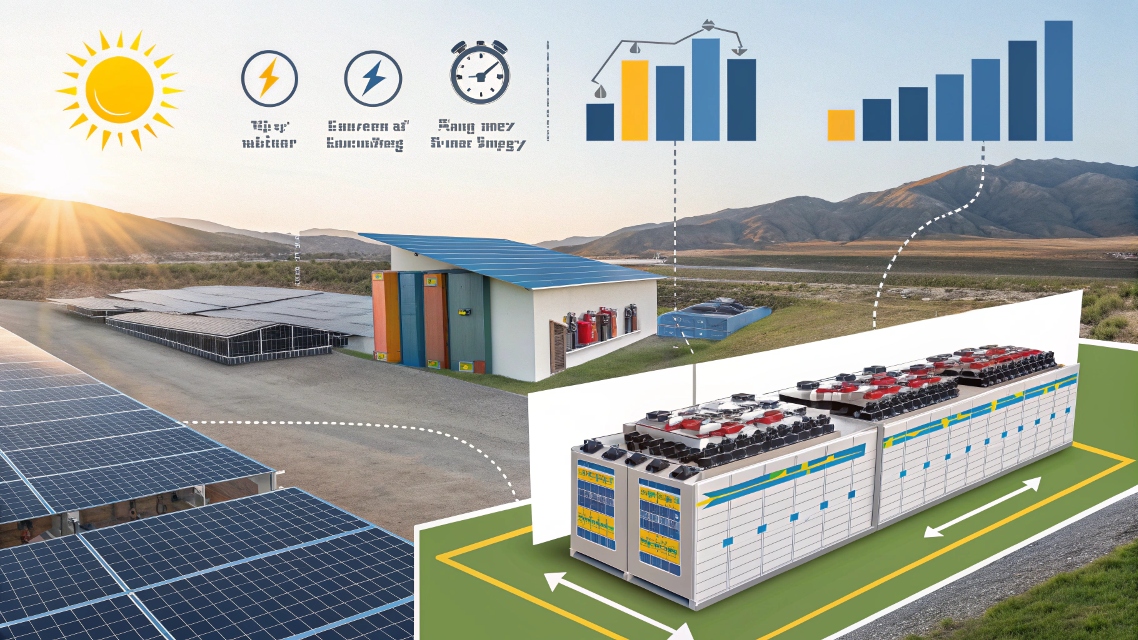
What affects how long energy stays usable in a battery?
Battery size, profundidad de descarga, daily energy demand, and system efficiency all play a role. In commercial setups, we size systems based on the client’s load curve. One of our factory clients stores about 500 kWh of solar energy daily, which powers key operations through the night.
- Pequeños sistemas (5–10 kWh): Store enough for household evening use.
- Medium systems (20–100 kWh): Suitable for small businesses or retail chains.
- Large systems (100+ kWh): Used in factories, warehouses, or off-grid operations.
In ideal conditions, lithium batteries lose only 1–2% of charge per month. That means if the system is well-sized and maintained, you can bank energy and use it strategically without worrying about rapid loss.
Conclusión
Lithium-ion solar batteries are the best choice for efficient, confiable, and long-lasting solar energy storage—especially for businesses aiming for independence and savings.
Understanding the high electrochemical potential of lithium can reveal why it’s a preferred choice for energy storage solutions. ↩
Exploring energy density will help you grasp how lithium batteries outperform older technologies in energy storage. ↩
Learning about charge cycles can explain the longevity and reliability of lithium batteries in various applications. ↩
